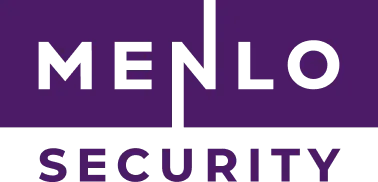
Menlo Security übernimmt Votiro, um Unternehmen eine einfache, KI-gesteuerte Datensicherheit zu bieten
Blog lesen

The World Health Organization (WHO) raised the global risk of COVID-19 to a pandemic on Friday, March 11, signaling that things are likely to get worse before they get better. High-profile events around the world have been cancelled, and the status of the 2020 Summer Olympics in Tokyo is reportedly in limbo.
Health officials around the world are recommending that people avoid crowds and stay at home when possible, leading many companies and organizations to implement temporary work-from-home policies for their employees. In fact, Google, Amazon, Microsoft, and Facebook have all encouraged their Seattle-based employees to work from home after the disease has continued to spread in the region. According to Reuters, this will affect more than 100,000 people in the Seattle metropolitan area.
Many enterprises today use Software as a Service (SaaS) platforms—giving employees who are working from home because of COVID-19 the ability to continue to do their jobs in the office or remotely. Unfortunately, accessing these web- and cloud-based tools outside the corporate firewall prevents IT from monitoring web traffic for malicious activity or making sure that browsers are updated and patched consistently and that emails containing phishing links are blocked. The problem is that most security services are delivered centrally. So though the applications have moved to the cloud, security has not, meaning that workers working remotely are more susceptible to phishing, ransomware, and web-borne malware attacks.
The only way to protect remote users who are increasingly relying on web-based apps, websites, and SaaS platforms is by delivering security services through the cloud. Cloud security ensures that policies follow users wherever they log in—whether it’s from corporate headquarters, a remote office, a customer site, a home office, or public Wi-Fi. Isolation adds an additional layer of security, separating users from the public web, while providing seamless access to SaaS applications and the Internet. It doesn’t matter if there’s a known or unknown vulnerability on the endpoint, because no content—whether it is malicious or not—is executed. Furthermore, emails with links and attachments are isolated, protecting users from entering sensitive information on phishing websites or downloading attachments designed to trick users.
Menlo Security product suites give enterprises a way to protect work-from-home employees from cyberattacks by delivering security services such as isolation through the cloud. The Menlo Security Global Cloud Proxy Platform with an Isolation Core™ provides ubiquitous cloud security no matter where the employee is working. Isolation adds an additional security layer in the cloud through which all Internet traffic flows. It’s here where security policy is enforced regardless of whether the user is behind a firewall or logging in from public Wi-Fi—providing 100 percent protection for endpoint devices. Read more about how we can help you provide the same level of security for remote workers as you do with employees working in the office.
Please review the Menlo Security’s limited time offer of free licenses for our Global Cloud Proxy and Secure Office 365 or Secure G Suite products to ensure security for remote workers during the COVID-19 crisis.
Menlo Security
